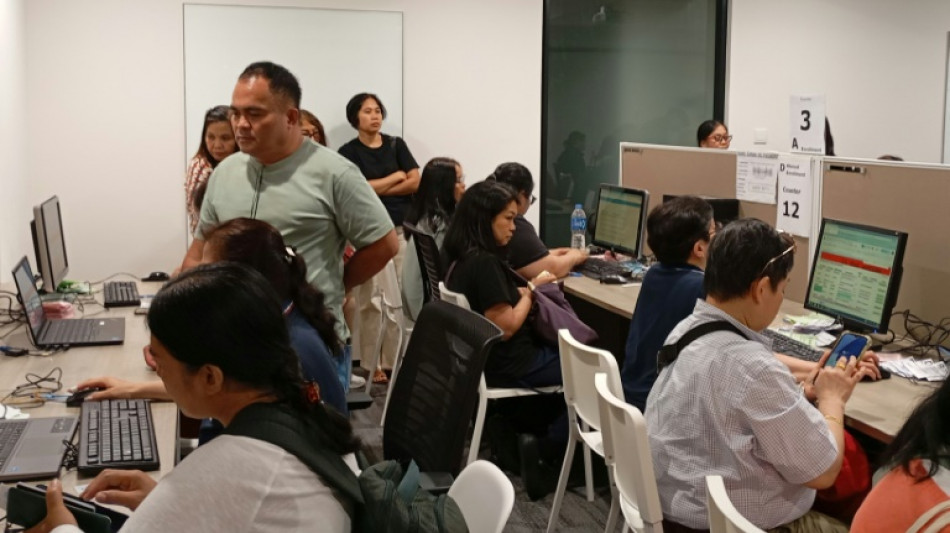
-
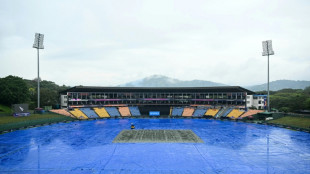 Bowlers, selectors under fire after Australia's T20 World Cup exit
Bowlers, selectors under fire after Australia's T20 World Cup exit
-
Racism allegations overshadow Real Madrid victory as PSG win in Champions League

-
 Japan's Nakai shines on ice as Frostad soars to Olympic big air gold
Japan's Nakai shines on ice as Frostad soars to Olympic big air gold
-
Japanese teen Nakai leads Sakamoto after Olympic women's short programme

-
 Sweden to face USA in Olympic men's ice hockey quarter-finals
Sweden to face USA in Olympic men's ice hockey quarter-finals
-
Alexander-Arnold hits out at 'disgusting' alleged Vinicius racism

-
 Bird flu ravaging Antarctic wildlife, scientist warns
Bird flu ravaging Antarctic wildlife, scientist warns
-
Nakai leads Sakamoto in Olympics after women's short programme

-
 Guirassy guides Dortmund past Atalanta in Champions League play-offs
Guirassy guides Dortmund past Atalanta in Champions League play-offs
-
Vinicius stunner helps Real Madrid edge Benfica in play-off marred by alleged racism

-
 Doue inspires PSG to comeback Champions League win in Monaco
Doue inspires PSG to comeback Champions League win in Monaco
-
'Climate cult' hurts Europe's economy, US energy secretary tells AFP
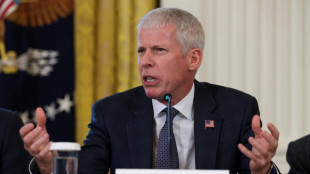
-
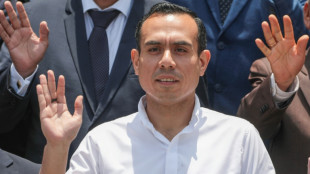 Peru's presidential musical chairs
Peru's presidential musical chairs
-
France arrests nine over far-right activist's killing

-
 France arrests seven over far-right activist's killing
France arrests seven over far-right activist's killing
-
Frostad dethrones Ruud in Olympic freeski big air thriller

-
 Galatasaray thrash 10-man Juve in Champions League play-off 1st leg
Galatasaray thrash 10-man Juve in Champions League play-off 1st leg
-
Woods return timeline uncertain, but won't rule out Masters
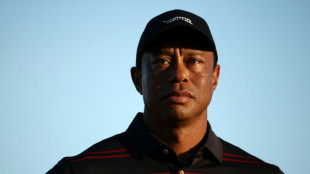
-
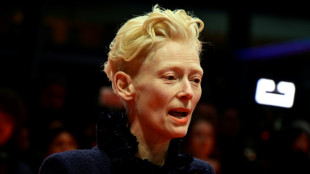 Dozens of film figures condemn Berlin Film Festival 'silence' on Gaza
Dozens of film figures condemn Berlin Film Festival 'silence' on Gaza
-
Iran, Ukraine talks spark diplomatic merry-go-round in Geneva

-
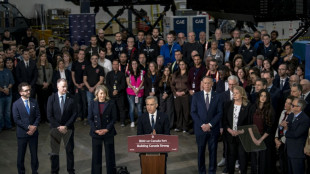 Canada launches huge defence plan to curb reliance on US
Canada launches huge defence plan to curb reliance on US
-
US says will match alleged Chinese low-yield nuclear tests

-
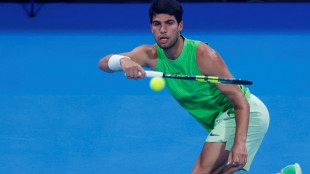 Alcaraz battles into second round of Qatar Open
Alcaraz battles into second round of Qatar Open
-
Russians, Belarusians to compete under own flags at Paralympics: IPC tells AFP

-
 Bayer proposes class settlement for weedkiller cancer claims
Bayer proposes class settlement for weedkiller cancer claims
-
Gauff, Rybakina cruise into Dubai last 16

-
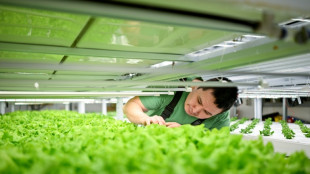 Greenland entrepreneur gambles on leafy greens
Greenland entrepreneur gambles on leafy greens
-
Father of US school shooter goes on trial on murder charges

-
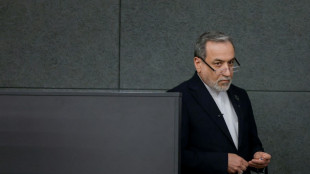 Iran, US agree on 'guiding principles' for deal at Geneva talks: Iran FM
Iran, US agree on 'guiding principles' for deal at Geneva talks: Iran FM
-
Warner Bros. gives Paramount one week to outbid Netflix

-
 Russians, Belarusians allowed to compete under own flags at 2026 Paralympics: IPC tells AFP
Russians, Belarusians allowed to compete under own flags at 2026 Paralympics: IPC tells AFP
-
Ukrainian wife battles blackouts to keep terminally ill husband alive
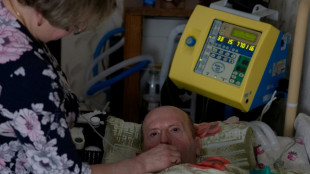
-
 Pollock handed first England start for Ireland visit
Pollock handed first England start for Ireland visit
-
Oil prices fall back as 'hopeful' Tehran responds to Trump

-
 Arteta welcomes Madueke and Saka's competition for places
Arteta welcomes Madueke and Saka's competition for places
-
France and India hail growing ties as Modi hosts Macron
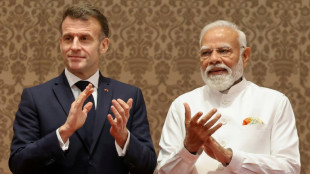
-
 Warner Bros. says reopening talks with Paramount on its buyout offer
Warner Bros. says reopening talks with Paramount on its buyout offer
-
Slalom showdown Shiffrin's last chance for Milan-Cortina medal

-
 Protesters march in Kosovo, as ex-president's war crimes trial nears end
Protesters march in Kosovo, as ex-president's war crimes trial nears end
-
No pressure on India opener Abhishek after two ducks, says coach

-
 Sakamoto eyes figure skating gold in Olympic farewell
Sakamoto eyes figure skating gold in Olympic farewell
-
Pereira 'trusts' Forest owner Marinakis despite three sackings this season

-
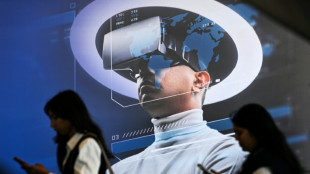 AI 'arms race' risks human extinction, warns top computing expert
AI 'arms race' risks human extinction, warns top computing expert
-
Israeli bobsleigher dismisses Olympics 'diatribe' by Swiss TV commentator

-
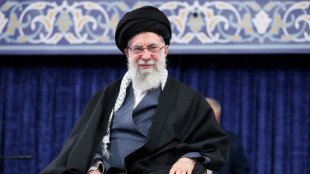 Supreme leader says Iran can sink US warship as Geneva talks conclude
Supreme leader says Iran can sink US warship as Geneva talks conclude
-
Australia, Ireland out of T20 World Cup as Zimbabwe qualify after washout
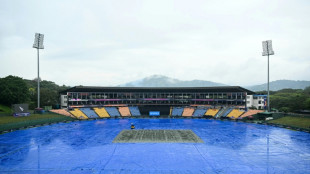
-
 Greece experts to examine Nazi atrocity photos find
Greece experts to examine Nazi atrocity photos find
-
Los Angeles mayor calls for 2028 Olympics chairman to step down over Epstein files

-
 Evenepoel takes UAE Tour lead with time-trial win
Evenepoel takes UAE Tour lead with time-trial win
-
Oil prices rise as Trump ramps up Iran threats


Digital voting breeds distrust among overseas Filipino workers
A new online voting system aimed at boosting turnout among the Philippines' millions of overseas workers ahead of Monday's mid-term elections has been marked by confusion and fears of disenfranchisement.
Thousands of overseas Filipino workers, or OFWs, have already cast their ballots in the race dominated by a bitter feud between President Ferdinand Marcos and his impeached vice president Sara Duterte.
While official turnout figures are not yet publicly available, data from the Commission on Elections (Comelec) show at least 134,000 of the 1.22 million registered overseas voters have signed up for the new online system, which opened April 13.
But Jun Burlasa III, a Filipino working in Singapore, says he will not vote again if he has to do it online.
"I'd rather do manual," the 50-year-old told AFP this week, describing the new system as "confusing and suspicious".
At issue is a digital QR code generated after voting that leads users to a page asking them to verify their ballot has been submitted correctly. Below that is a box containing a jumble of computer code and candidate names.
Burlasa said many of the names visible were candidates for whom he had not voted.
Similar stories about the anxiety-inducing webpage have proliferated across social media, including Facebook posts that have reached thousands.
Eman Villanueva, a Hong Kong-based activist with migrant rights group BAYAN, said he was unsure his vote had been properly counted.
"There is absolutely no way for the voters to know if the votes that went through really reflected our choices," he said.
In previous overseas elections, voters could review the names they selected after the fact, but Comelec told AFP the QR code was never supposed to serve that purpose.
The landing page was only intended to verify a ballot's receipt, the commission said, adding that the name of every candidate running in the election should appear.
"We are definitely considering the feedback and studying how to incorporate them in future elections," Ian Geonanga, Comelec's director of overseas voting, told AFP.
Election watchdogs, however, say the commission failed to properly explain the new system and warn of the confusion risks disenfranchising voters.
"It's a natural reaction of people that if you're not familiar with the system, then you won't trust it the first instance," said Ona Caritos, executive director of the nonprofit Legal Network for Truthful Elections (Lente).
- ChatGPT, disinfo and 2028 -
Since April 14, 1.5 million people have watched a video in which a Philippines-based engineer named Jaydee San Juan quizzes ChatGPT about the names visible on the ballot verification page.
"It's highly likely showing the candidates that were selected/voted for using that ballot ID," the AI chatbot replied.
Comelec, however, got the opposite answer when conducting the ChatGPT experiment itself, Geonanga told AFP.
The election commission's efforts to quell fears about the new system, meanwhile, have been misrepresented to sow more disinformation.
AFP fact-checkers recently debunked a video edited to make it appear Geonanga was saying online ballots were "designed" to rig the election's results.
The fiasco has also left election watchdogs and migrant groups sceptical that the switch to online voting will boost turnout as intended.
Danilo Arao, convenor of voting watchdog Kontra Daya, said even a small change to the ballot's design might have helped assuage fears he believes could lead to "widespread disenfranchisement".
Lente's Caritos said losing trust in the online voting system could impact OFWs' participation in the 2028 presidential election.
“We don't want that, because if election results are not trusted by our voters, then it would go into the legitimacy of the government," she said. "It's a domino effect."
L.Durand--AMWN

